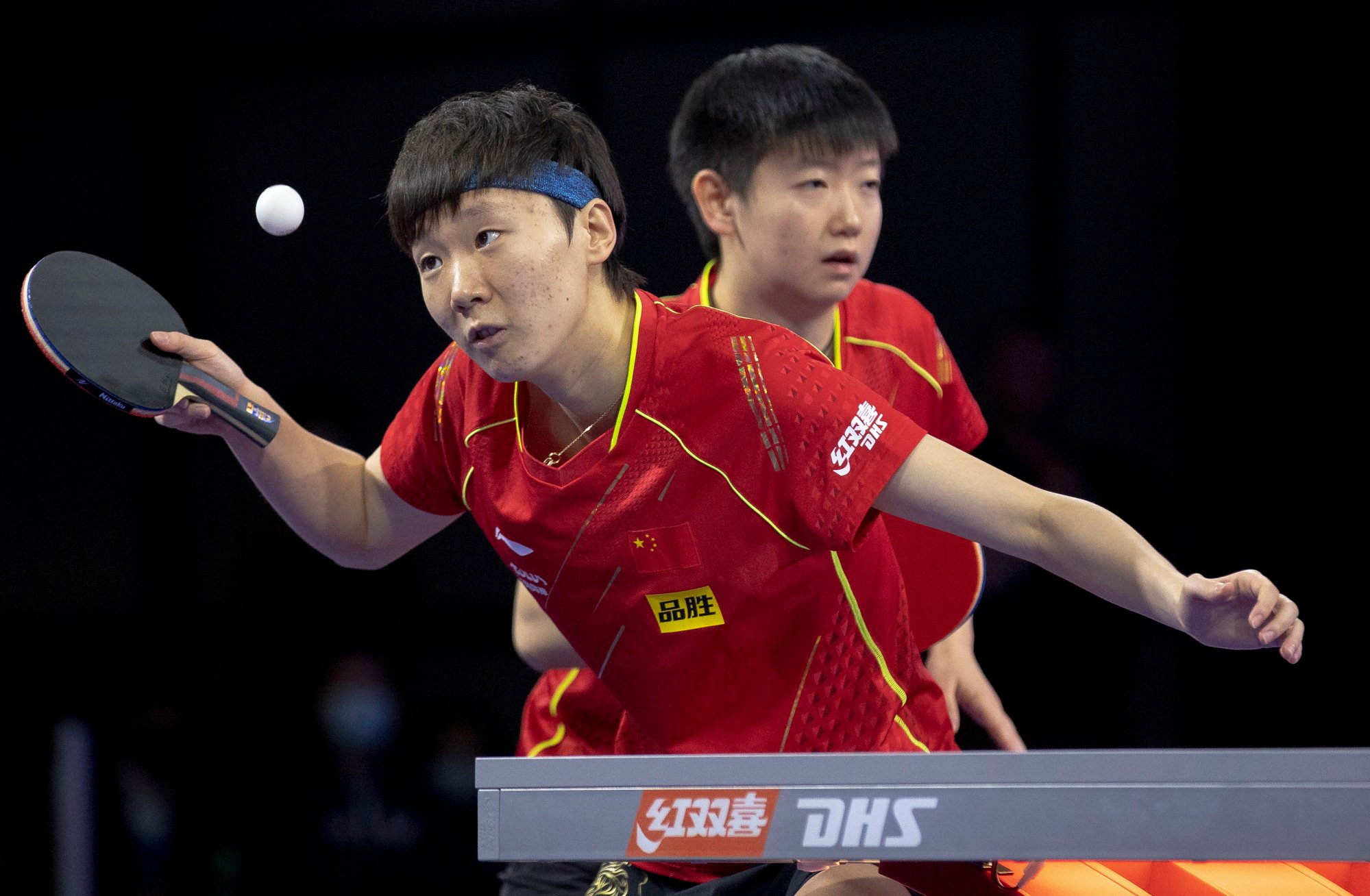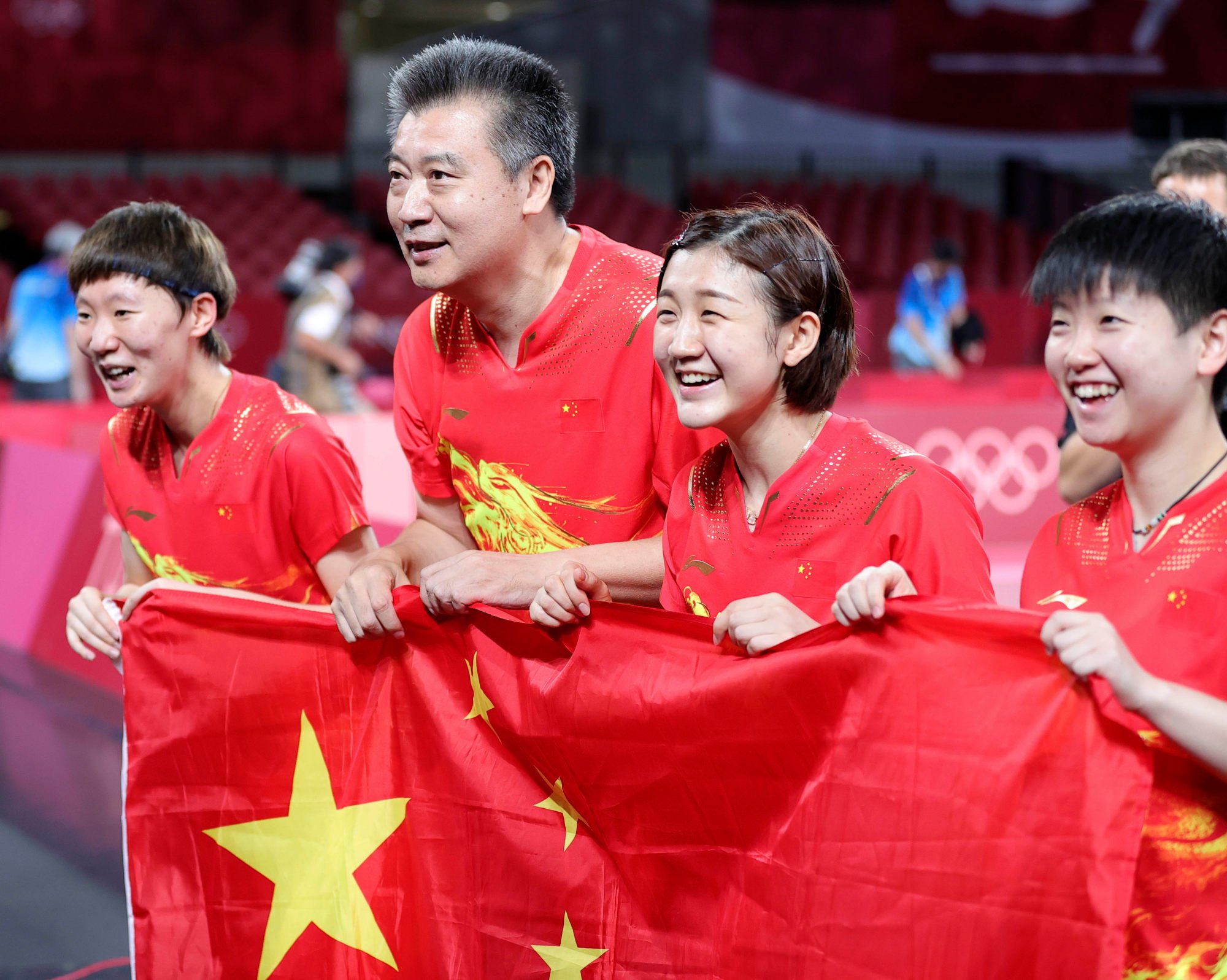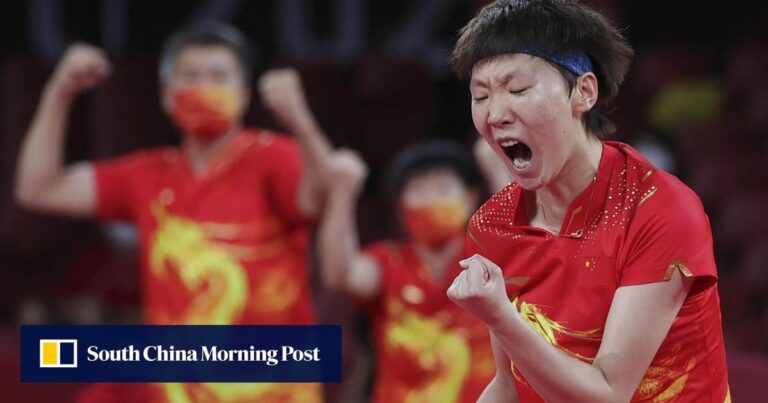Wang’s supporters argued that the 2023 Asian champion’s exclusion from the women’s singles team showed the selection process was unfair and said Chinese authorities had tried to cut off their talks.
“CTTA and [government agency] “Now that the General Administration of Sport of China has taken charge of this matter, there will definitely be protests in Paris,” Huang said. “There are also Paris-based fans campaigning to defend Wang.”

Huang said protesters at the Olympics could make their point by disrupting China’s broadcast of the events.
“people [in the group] “They said that if there were protests at the Olympics the BBC and other media would be very interested,” she said.
“How are they? [China] If there are banners in the stadium, will they broadcast the game? And they [foreign media] There is no censorship, so you can ask any question you want.”
On May 14, China selected world No. 1 Sun Yingsha and defending Olympic champion Chen Meng for the women’s singles at the Paris Olympics. Wang was included as a member of the women’s team.
In China, players are selected based on the points they earn from performances in major tournaments and their performances against foreign players.
Fans took note of Wang’s eight championship titles and Chen’s two during the Olympic qualification period.
But Chen earned more points than Wang during the qualifying period and benefited from wins over Sun and three Japanese players on his way to winning the Saudi Smash.
Following the announcement that Wang would not compete in the singles, Huang was one of thousands of people who signed a 10,000-word petition to the China Sports Administration outlining five ways to improve selection standards.
Huang said he was part of a spam campaign of hundreds of people who sent lobbying emails and phone calls to the CTTA and the International Table Tennis Federation (ITTF).
Other fans broadcast a video of Wang’s career highlights on a screen at a Chinese shopping mall where customers can submit videos, along with a text informing them that she had not been selected.
They also purchased advertising space in New York’s Times Square, where they also aired the video.
The group has also made the unfounded accusation that Cheng was taking advantage of coach Ma Lin’s goodwill and falsifying his age to join the national team.
Zhang Lina, a mainland Chinese lawyer, joined the movement by writing a letter demanding an explanation for why Chen was chosen over Wang, a decision she called “absurd.”
“We are trying to get a response from the government,” Zhang said. “In China, Olympic athlete lists need to be approved by the government, and we believe there is a problem with that approval process.”
“So we have requested the government to provide us with the relevant documents.”
Zhang said she received a response from the Sports Administration saying the documents would not be made available to the more than 200 fans who had requested them.
On May 15, sports officials issued a press release declaring that a “distorted fan culture” must be resisted, noting that similar incidents in recent years have had a negative impact on athletes.
“In China, we’ve been very heavily censored,” Huang said. “People have started to react. [to Wang’s omission] “On social media. It was a top trending topic on Weibo and Xiaohongshu. But it started to get censored.”
The Post has seen that hashtags discussing why Wang should be chosen over Chen have been removed from Chinese social media platforms.
The ITTF’s Weibo post announcing the teams appears to have been censored: While the platform was flooded with positive comments congratulating the selected players, the same post on the federation’s Instagram account received hundreds of comments in both English and Chinese calling for Wang to be included.
On Chinese social media, posts can be censored for a variety of reasons, including discriminatory speech, false accusations, vulgar or pornographic content, or content deemed critical of the Communist Party.
Fans said they used to discuss what coordinated action to take in WeChat groups with hundreds of members, but that was shut down. Now they, too, are turning to social media posts to spread their messages before they are deleted.

“At first, they were just venting their frustrations online, but when they were censored they had no choice but to go offline, and the more they were silenced, the angrier they became,” Huang said.
“This is now a social justice movement. It’s no longer about sport per se, it’s about disappointment with the government and the country.”
The behaviour of Chinese sports fans has sparked conflicts with authorities and even with their idols.
Last November, the Chinese Olympic Committee and Sports Administration issued a joint statement about harassment of athletes.
That month, at the China Badminton Masters in Shenzhen, Japan’s Shida Chiharu was chased to her hotel by Chinese fans.
Chinese table tennis star Wang Chuqin and basketball player Yang Shuyu have previously spoken out after fans followed and filmed them at airports.
And in November, Chinese diving prodigy Quan Hongchang, 16, was shocked when fans criticised the judges at the national championships where he came second.
*Names have been changed to protect the identities of interviewees

